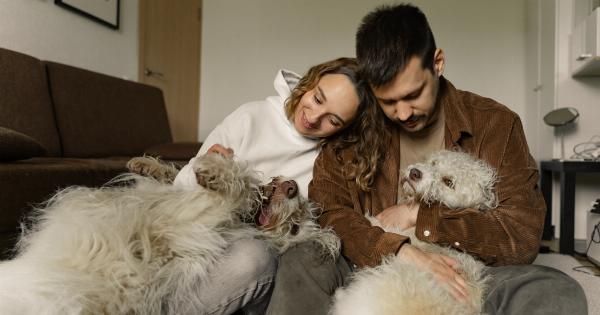As a dog owner, you must have wondered at times why your furry friend behaves in a certain way around other dogs. Some dogs are aggressive, while others are submissive, and some are over-enthusiastic, while others are aloof.
Here are some of the reasons behind your dog’s behavior around other dogs:.
1. Breed Characteristics
The breed of your dog plays a significant role in determining their behavior around other dogs. Some breeds are known for their friendly and social nature, while others are independent or more aggressive.
For instance, golden retrievers are known to be friendly and social dogs who love interacting with other dogs. On the other hand, breeds such as the Chow Chow or Akita are known to be more independent and less social around other dogs.
2. Socialization
Another crucial factor that determines your dog’s behavior around other dogs is their level of socialization. Socialization is how your dog interacts with people, other dogs, and the environment.
A well-socialized dog is more likely to be friendly and confident around other dogs. On the other hand, a dog that has not been socialized well may be timid or aggressive around other dogs.
It’s crucial to socialize your dog from a young age to ensure that they are comfortable and confident around other dogs. You can do this by taking your dog to the park, dog daycare, or training classes where they can interact with other dogs.
3. Fear and Anxiety
Your dog’s behavior around other dogs may also be influenced by fear and anxiety. Fear is normal in dogs, but when it becomes intense, it can lead to aggression or avoidance.
If your dog has had a negative experience with another dog, they may become fearful or anxious when they see another dog. This fear can manifest itself as aggression or avoidance.
In such cases, it’s essential to gradually introduce your dog to other dogs to help them overcome their fear and anxiety.
4. Territoriality
Some dogs can become territorial around their owners or their home. If another dog enters their territory, they may become aggressive to protect their territory.
If your dog shows territorial behavior, it’s essential to establish rules and boundaries around your home and teach your dog to respect them. You can also consult a professional dog trainer to help you address territorial behavior.
5. Health Issues
Finally, your dog’s behavior around other dogs may be influenced by underlying health issues. If your dog is in pain or discomfort, they may display aggression or avoidance towards other dogs.
It’s crucial to take your dog to the vet regularly to ensure that they are healthy and pain-free. If you notice any sudden changes in your dog’s behavior around other dogs, it’s essential to take them to the vet for a check-up.
Conclusion
Understanding the reasons behind your dog’s behavior around other dogs can help you address any issues and ensure that your furry friend is comfortable and happy.
Remember to socialize your dog from a young age, establish clear boundaries, and seek professional help if necessary.






























